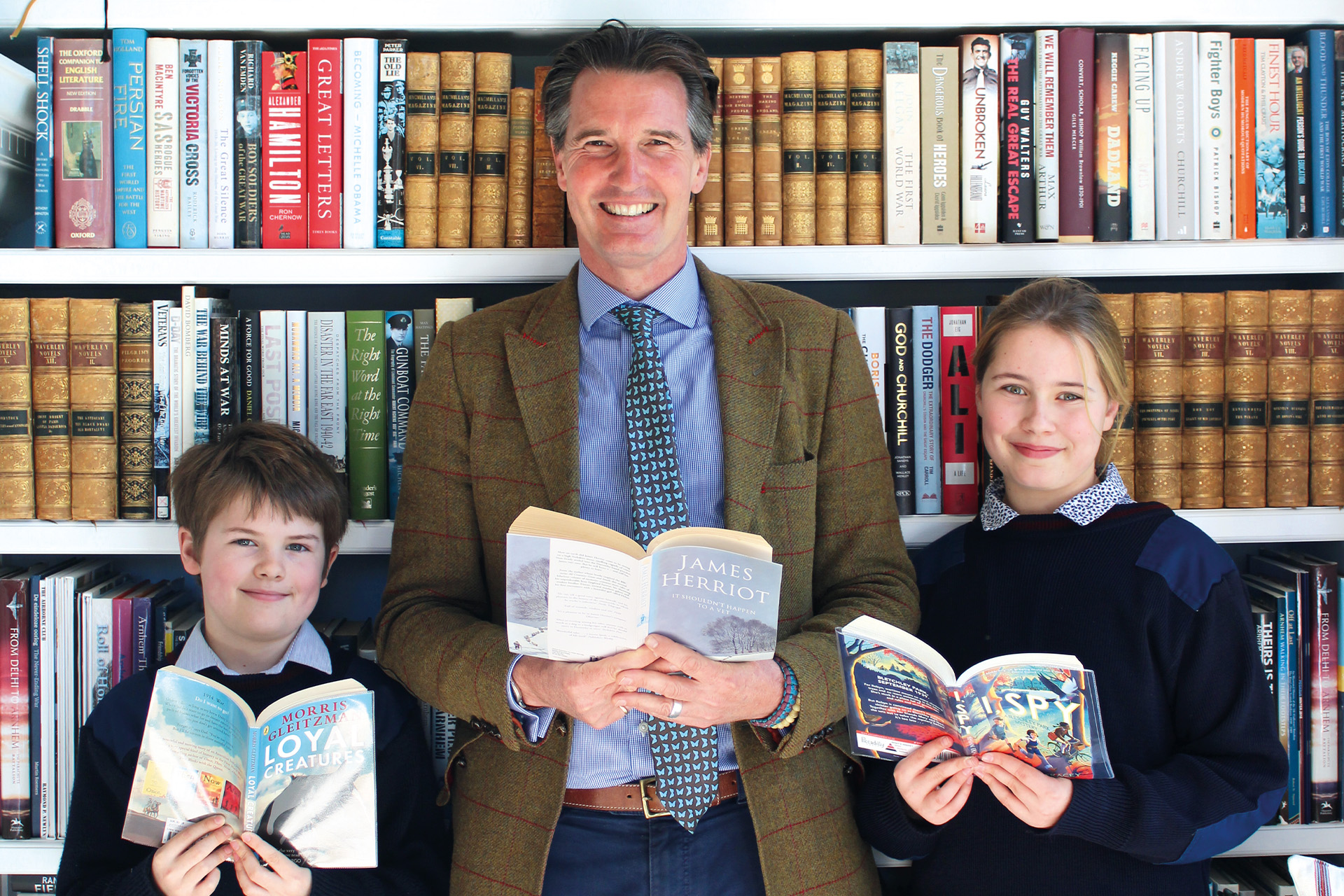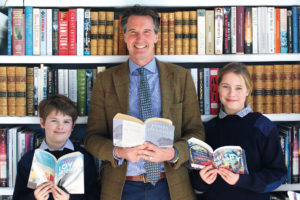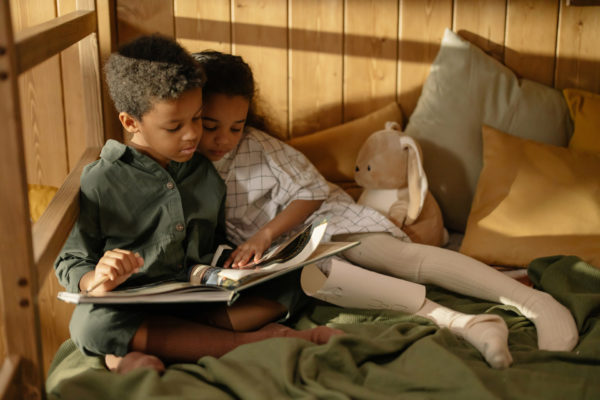How Can We Preserve Storytelling?
By
2 years ago

Titus Mills, Headmaster of Port Regis, says storytelling is fighting for its life
It’s not been long since changes to Roald Dahl’s beloved children’s books sparked fierce debate. The removal of references to certain characters’ appearance provoked strong feelings on both sides. Even the Prime Minister was drawn into the ‘airbrushing’ of historic works of fiction about Mrs Twit and Augustus Gloop.
But amid this war of words a bigger and arguably more alarming point was overlooked: far fewer children are reading Roald Dahl books at all. In fact, fewer children are picking up books by any author. All the statistics show that young people are reading less frequently than any previous generation – and far fewer children are being read to at home by adults. And that should be of greater concern than precisely how we describe The BFG.

Titus Mills and pupils
As teachers and parents, we’re all aware of the significant social and educational benefits of reading, as well as the positive impact books, and storytelling, can play in sustaining mental health and wellbeing. So the current research is deeply worrying.
Literature now has to compete with an array of electronic media. The ubiquity of devices means spare moments are easily and compulsively filled with screens. According to a recent UK survey, 69 percent of 0-17 year olds prefer screens to books.
I saw this myself on a recent family holiday. Our eldest son (21) was enthusiastic about digging into a good book, while his younger brother (14) had to be prized away from his screen. In my mind, this was less about a difference in their individual characters, and more a wider generational shift. Increasingly, the young are choosing screens over books, and TikTok over narrative.
Against this backdrop, schools need to work harder than ever to preserve storytelling in all its forms. Since the beginning of time, and in every country and culture, stories have passed on traditions and taught life skills in compelling and memorable ways. Stories are how humans learn best. They are the oldest form of education.
I am reminded of this every September when I travel to a battlefield in Holland with a group of pupils and parents. It’s a trip I’ve taken for many years to hear, first-hand, the dramatic stories of life and loss, from a dwindling number of elderly men and women who endured the Battle of Arnhem in 1944. Their eyewitness accounts are profoundly moving and leave an indelible mark on young and old alike. This is learning at its most powerful and visceral. It’s living proof that, as Rudyard Kipling once wrote, ‘If history were taught in the form of stories, it would never be forgotten.’
So, what should we do to keep young readers engaged? I believe the answer lies in keeping stories and storytelling front and centre in all our schools. It is as crucial to our pupils’ development as regular exercise, or a balanced diet. In practice, this can take many forms – from assemblies to dramatic productions, library sessions to bedtime reading in boarding life. And crucially, it can complement and bring colour to new fast-paced technology, rather than working in opposition to it.
All of which brings us full circle. Roald Dahl wrote, ‘I have a passion for teaching kids to become readers. Books shouldn’t be daunting, they should be funny, exciting and wonderful; and learning to be a reader provides a terrific advantage in life.’
Nothing controversial here. I think we would all agree with these wise words by Dahl.
Titus Mills is Head of Port Regis School in Dorset






